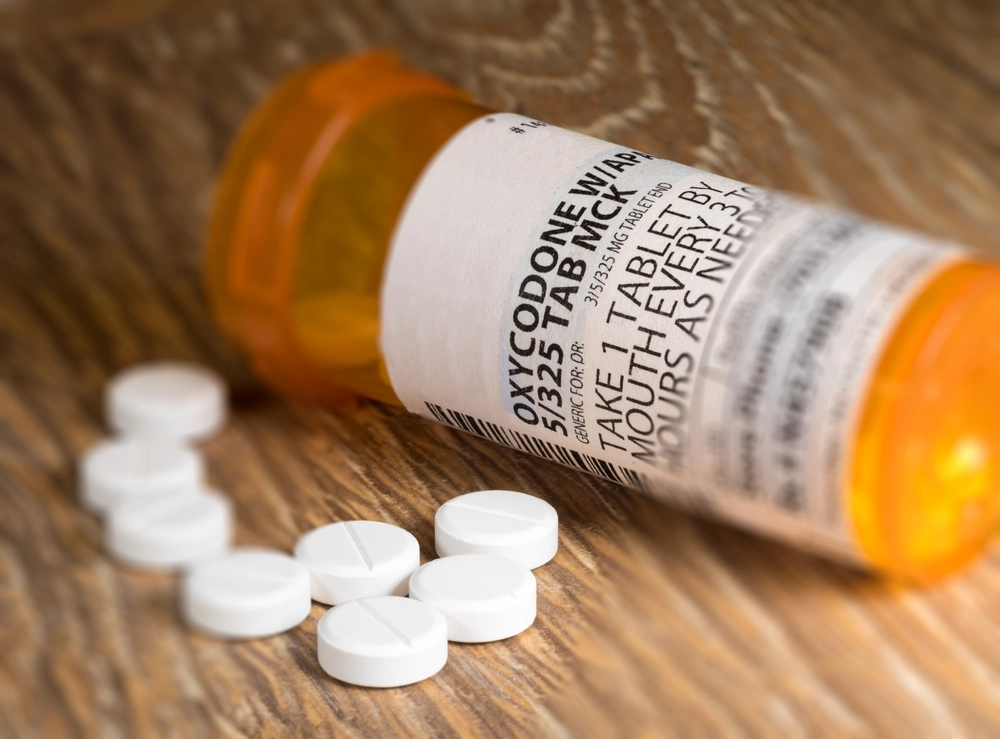
Oxycodone is a powerful narcotic opioid that is prescribed to manage moderate to severe pain. Oxycodone is in the same drug family as heroin and, like heroin, it is profoundly addictive — even when taken as prescribed. People who have developed a dependence on oxycodone often find quitting to be very challenging. Tapering is a strategy that can help people successfully overcome oxycodone use disorders.
There are several formulations of oxycodone, including immediate release and controlled release, which are provided under the brand names OxyFast and OxyContin, respectively. Immediate-release oxycodone is also provided in combination with acetaminophen or aspirin, which are provided under the brand names Percocet and Percodan, respectively.
The OxyContin manufacturer Purdue Pharma has recently been at the center of a major legal battle. Authorities are charging that the pharmaceutical company “deliberately minimized” data identifying OxyContin as one of the most addictive drugs on the market and knowingly misled medical professionals and regulatory agencies in order to make billions of dollars in profit. According to the National Institute on Drug Abuse, one study found that 86% of people who use heroin first used prescription opioids, underscoring the astonishing damage caused by prescription opioids.
The wholly unjustifiable behavior of the so-called “Big Pharma” left millions of Americans who took oxycodone exactly as prescribed with unmanageable opioid dependence and addiction. Consequently, oxycodone use disorders have become quite prevalent, leaving many hard-working, law-abiding citizens wondering how to overcome a potentially devastating substance use disorder.
New Year. Real Recovery.
The pressures of the season are real. Find lasting peace and expert support.

Oxycodone Withdrawal Symptoms
There are a number of oxycodone withdrawal symptoms, including:
- Anxiety
- Depression
- Heightened pain sensitivity
- Trembling
- Sleep disturbances
- Restlessness
- Irritability
- Cravings
Severe oxycodone withdrawal is often described as terrible flu-like symptoms including:
- Nausea/vomiting
- Diarrhea
- Runny nose
- Teary eyes
- Yawning
- Fever/sweating
- Dysphoria (an overall sense of unease/dissatisfaction)
- Anhedonia (an inability to experience pleasure)
How To Taper Off Oxycodone
Opioid dependence is caused by very physical and chemical changes in the brain. When opioids are taken regularly, even as prescribed, the brain becomes accustomed to their presence alters chemical signaling. If someone who has become dependent on opioids quits taking them abruptly (cold turkey), the brain reacts as if a necessary chemical is absent. This effect leads to cravings and other physical and psychological withdrawal symptoms.
The most effective strategy for stopping oxycodone use is to taper the dose over time. Tapering is the process of gradually reducing the opioid dose, which allows the body the chance to gradually re-establish normal physiology. Tapering is a highly successful strategy and is far safer and more effective than trying to quit cold turkey. Oxycodone tapers should be designed by medical professionals who have experience in helping people overcome opioid use disorders.
Oxycodone Taper Schedule
The most reliable oxycodone tapering schedules are developed in conjunction with a medical professional who specializes in addiction. There are a number of factors that influence the tapering schedule, including the degree of dependence, whether chronic pain is present, the use of other drugs or alcohol and physical and mental health. By working with a professional who has experience in oxycodone dependence and recovery, a tapering schedule that minimizes withdrawal symptoms and is tailored to specific lifestyles can be created.
The formulation of oxycodone is also an important consideration when developing a tapering schedule. A general strategy for tapering off controlled-release oxycodone (e.g., OxyContin) is as follows:
- First, decrease the dose by 20% to 50% per day until 30 mg/day is reached
- Continue to decrease the dose by 15 mg/day every two to five days
It is important to stress that there are considerations that affect how a tapering strategy is designed. The most effective tapering strategy is one that a doctor prescribes.
Medically-Assisted Oxycodone Detox
In some cases, a medically-assisted detox is the most effective way to overcome an oxycodone addiction. Oxycodone dependence is caused by significant changes in the brain, including delivering a sense of euphoria that reinforces dependence and promotes addiction. Medical detox is an inpatient detox program that provides around-the-clock care from medical professionals who will provide an appropriate tapering schedule and, when appropriate, medications that can mitigate oxycodone withdrawal symptom severity.
Medication assisted treatment (MAT) provides medications that have similar pharmacological properties as oxycodone but without delivering the euphoric, self-reinforcing “high” that it is infamous for. In other words, MAT “tricks” the brain into thinking that oxycodone is present, preventing debilitating withdrawal symptoms, but without delivering the high that promotes addiction.
Commonly used MAT medications include:
- Suboxone: Suboxone is a combination of the opioid antagonist naloxone (an opioid antagonist inhibits the effects of opioids) and the partial opioid agonist buprenorphine (a partial opioid agonist delivers some, but not all, of the effects of an opioid). Suboxone provides similar effects as oxycodone but without delivering the high associated with oxycodone.
- Naltrexone: Naltrexone binds to the same receptors as oxycodone, which causes the brain to believe that oxycodone is present. However, Naltrexone blocks the effects of oxycodone.
- Clonidine: Clonidine is a mild sedative that can reduce the severity of oxycodone withdrawal symptoms.
If you or someone you love is struggling to overcome an opioid use disorder, help is available. The Recovery Village Ridgefield provides comprehensive rehab programs that can facilitate every stage of recovery and is dedicated to the client’s long term success. Call today to learn how professional rehab can help you live healthier.



